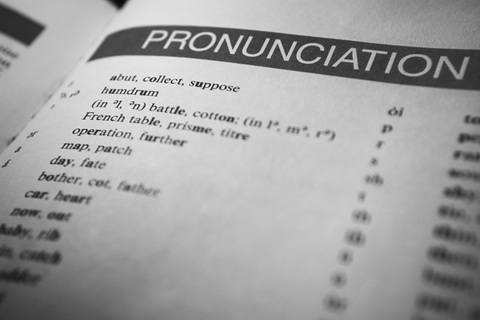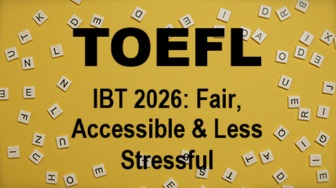TOEFL Internet-Based Test (IBT): More Accessible, Fair, and Less Stressful from 2026
The Test of English as a Foreign Language (TOEFL) has long been a trusted gateway for students aspiring to study abroad. From the United States to Canada, Australia to Germany, universities worldwide recognize TOEFL scores as proof of English language proficiency. In 2026, the TOEFL Internet-Based Test (IBT) is set to undergo some of the most student-friendly changes in its history — making it more accessible, fair, and less stressful for test-takers around the globe.
These updates, introduced by the Educational Testing Service (ETS), aim to level the playing field, reduce anxiety, and streamline the testing process without compromising its rigorous standards. For Indian students — who are increasingly exploring education opportunities in European destinations alongside traditional English-speaking countries — these changes could not come at a better time.

Why the TOEFL IBT Matters
TOEFL is not just a test — it’s a ticket to world-class education. More than 11,500 institutions in over 160 countries accept TOEFL scores, making it one of the most recognized English proficiency assessments in the world. For many, a strong TOEFL score is the deciding factor in securing admission, scholarships, or even a visa.
In India, TOEFL holds special importance. With an increasing number of students aiming for top universities abroad, a standardized, fair, and accessible test is critical. The 2026 changes promise to make the TOEFL experience even better.
The Big Changes Coming in 2026
ETS has announced several major updates for the TOEFL IBT starting January 2026. These changes are based on years of research, test-taker feedback, and the evolving needs of the global education landscape.
- Adaptive Testing: The TOEFL IBT will now use adaptive technology, tailoring questions to a candidate’s skill level as the test progresses. This means more accurate scoring and a fairer assessment for all.
- CEFR-Aligned Scoring: The test will introduce a simplified 1–6 scale aligned with the Common European Framework of Reference for Languages (CEFR), alongside the traditional 0–120 score.
- Shorter Duration: The total exam time will now be under two hours instead of three, reducing fatigue and stress.
- Fewer Questions: The number of questions in each section has been reduced, without affecting the accuracy of the assessment.
- Faster Results: Scores will be delivered within 4 to 6 days, allowing students to meet tight application deadlines.

Why These Changes Matter
In the past, some test-takers felt that cultural or linguistic differences could put them at a disadvantage. For example, a question based on a particular accent or cultural context could unintentionally favor one group over another. Adaptive testing reduces this bias by focusing on the test-taker’s individual skill level, not just a fixed set of questions.
With the CEFR alignment, students can easily compare their proficiency levels with global standards used in Europe, making applications to universities in Germany, France, the Netherlands, and other European destinations more straightforward.
Making the TOEFL IBT More Accessible
ETS has expanded its network of test centers in India, now covering tier-1, tier-2, and even tier-3 cities. This includes:
- Tier-1 cities like Delhi, Mumbai, Bengaluru, and Chennai.
- Tier-2 cities such as Chandigarh, Indore, and Visakhapatnam, with 29 centers across major hubs.
- Tier-3 cities including Bhimavaram and Mehsana, with coverage in 19 smaller districts and markets.
This expansion means students in smaller towns no longer need to travel long distances to take the test. ETS has also strengthened test security measures, ensuring the integrity of the exam.

Impact on Indian Students
The response from Indian students has been overwhelmingly positive. Since the introduction of the new format in pilot runs, several states have seen a dramatic increase in TOEFL participation. For example, Andhra Pradesh saw a 34% rise in test-takers, Telangana by 34%, and Gujarat by 72%.

These numbers reflect a broader trend: more students from non-metro areas are considering studying abroad, and the improved accessibility of the TOEFL IBT is helping make those dreams a reality.
Exam Dates for 2026
For students planning ahead, here are the expected TOEFL IBT exam dates for August 2026 (as per ETS scheduling trends):
Online Test Dates
August 11, 12, 13, 16, 18, 19, 20, 23, 24, 25, 26, 27, 30, 31
Centre-Based Test Dates
August 20, 23, 30
(Exact dates are subject to ETS confirmation closer to 2026.)
Step-by-Step Registration Process
- Visit the official ETS TOEFL website.
- Create an ETS account with your personal and academic details.
- Select your preferred test date and location (online or test center).
- Pay the registration fee via credit card, debit card, or net banking.
- Receive your confirmation email with test details.
Preparing for the New TOEFL IBT
While the new format is designed to be less stressful, preparation remains key to achieving a high score. Here are some tips:
- Understand the adaptive testing format — practice with sample adaptive tests if available.
- Focus on your weaker areas first, as adaptive testing will adjust to your performance.
- Practice with official ETS materials for accuracy.
- Improve time management skills — with a shorter test, pacing is crucial.
- Take practice tests under exam conditions to build stamina.
TOEFL vs Other English Tests
While IELTS and PTE are popular alternatives, the TOEFL IBT’s global acceptance and new student-friendly features make it a strong choice. The CEFR alignment particularly benefits those applying to European institutions, while the adaptive testing ensures a fairer experience for all.
Conclusion: A Game-Changer for 2026 and Beyond
The TOEFL IBT’s transformation in 2026 marks a significant step towards inclusive, fair, and accessible testing. With adaptive technology, a simplified scoring scale, and faster results, ETS is making the test more student-centric than ever. For Indian students — whether from metro cities or small towns — the TOEFL IBT is now not just a requirement, but a genuinely supportive tool in their study abroad journey.
Disclaimer
The information provided in this blog is intended for general awareness and educational purposes only. While we strive to ensure that all details are accurate and up-to-date, policies, formats, fees, and exam schedules for the TOEFL Internet-Based Test (IBT) may change at the discretion of the Educational Testing Service (ETS) without prior notice. Readers are strongly encouraged to visit the official ETS TOEFL website or contact authorized TOEFL representatives for the most current information before making any decisions regarding test registration or preparation. www.merijobs.in does not claim any official association with ETS or TOEFL and is not responsible for any errors, omissions, or consequences arising from the use of this information. Any reliance placed on the content of this blog is strictly at the reader’s own risk. Always verify details directly from the official source before proceeding with any examination-related actions.


Recent Comments